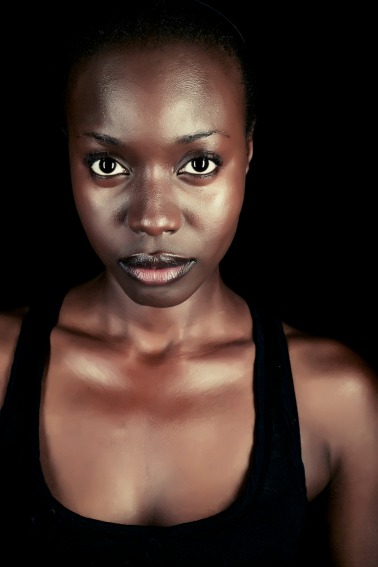The fact that colorism is still very much a global cultural practice, as feminist author Alice Walker once said, is both sad but not shocking at all.
In the April issue of InStyle, Fashion and Beauty Editor-at-Large Kahlana Barfield Brown opened up about how as a dark-skinned woman she learned to love herself, even when colorism reared its ugly head consistently. As a young, dark-skinned woman, I understood the importance of an article as such being published for the world to consumer — no mater how much it feels like it’s beating a dead horse.
Barfield explained that she was aware of her chocolate skin tone from a very young age. “I’d lie on my bed listening to music and stare at them for hours. Janet Jackson. TLC. Aaliyah. All of them pretty. All of them successful. All of them light-skinned,” she said. “Besides my family, these were the women I idolized. I bought their albums. Mimicked their dance moves. And tried my best to duplicate their wardrobes. I wanted to be just like them. But every time I looked in the mirror, I was reminded I wasn’t. My nose was wider. My lips were fuller. And my skin was darker. Much darker.”
While colorism wasn’t necessarily introduced in a formal manner during that time of hanging posters on her walls, she went on to share that in the seventh grade it happened — a day she describes as one she’ll never forget:
“I thought an upperclassman I had a crush on was paying me a compliment. “You’re pretty,” he said. Before I could fix my lips to say thank you, he finished his sentence: “for a dark-skinned girl.” I’d never felt so humiliated and degraded in my life. Crazy thing is, the guy who made the comment was darker than me. I couldn’t understand it. Why couldn’t I just be pretty? Why did I have to be pretty—for a dark-skinned girl? I was on the honor roll. Captain of the cheerleading team. And none of it seemed to matter. He couldn’t see past my complexion. In fact, a lot of guys couldn’t. Time and time again, I was overlooked in favor of my lighter-skinned besties. I’d be lying if I said it didn’t affect me. I just chose not to let it define me.”
Personally, the “pretty for a dark-skinned girl” line is so played out to me, but it continues for me even up to today. For some reason, Kanye West’s lyric: “With some light-skinned girls and some Kelly Rowland’s,” still gets under my skin a bit. A good amount of my friends are lighter-skinned and I always felt a bit out of place like I didn’t belong, especially when going out to clubs where the door men can be fickle or meeting guys who seemed to only be interested in women of lighter complexions. I knew I was attractive, but I couldn’t get past the fact that the color of my skin could be hindering me from certain things and even living freely and embracing my whole self. Not to mention, I too, didn’t see enough dark-skinned women in the media growing up, which skewed my perception of being inferior or not beautiful enough. Regardless of how confident I appeared on the outside, comments like such really bothered me.
Barfield, who hoped that that phrase would stay in middle school, also learned that it didn’t. Instead of checking the guy and reiterating her family’s stance of being proud of her skin tone, it made her want to mask for insecurities with fashion to finally doing some deep soul-searching that made her reflect on what exactly beauty meant to her.
After seeing an influx of beautifully brown sisters in the limelight like Lupita Nyong’o and Viola Davis, who Barfield has interviewed, it’s amazing to know that young girls today won’t have to feel a void of dark-skinned women when they’re watching TV or reading a magazine. While I know that colorism is still skin deep, I agree with Barfield: “Moreover, beauty transcends physical features. When you know who you are on the inside, it radiates on the outside. That’s what makes you beautiful. Not just beautiful for a dark-skinned girl—but beautiful as a person.” But forreal y’all, that line has got to go in 2016. If you’re beautiful, you’re beautiful. That’s it!
Have you witnessed the “pretty for a dark-skinned girl” line before? If so, how did you deal?










